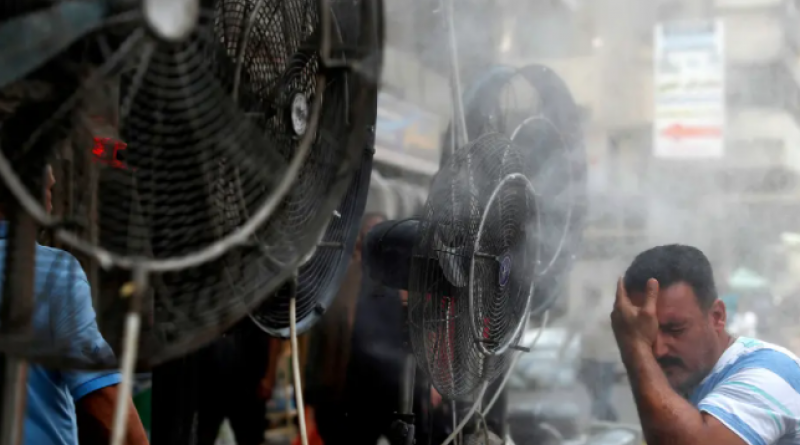Iraqis battle in 50C heat as Iran halts power supply due to unpaid bills.

Iraq’s electricity minister has resigned as protests erupt in Basra over the crippling shortages.
Provinces across Iraq’s south have halted work amid scorching temperatures and rolling blackouts after Iran halted a crucial supply of power, pushing the country’s energy crisis to breaking point.
Iraq’s electricity minister Majed Mahdi Hantoosh submitted his resignation this week as temperatures soared to 50C in southern districts such as Basra where protests have erupted against the crippling shortages.
It came as cash-strapped Iran, whose gas and electricity supplies often meet as much as a third of Iraq’s power demands, drastically curtailed the exports to its neighbour, probably in an attempt to pile pressure on the government for outstanding payments.
Iraq owes Iran billions for gas and electricity. Meanwhile, Iran is suffering its own energy shortages and cuts.
The Iraqi government is in a very bad situation, because of the corruption and random planning and the continued dependence on Iran for its power output
Ayad Khalaf, Al-karkh Distribution Company
An official at Iraq’s electricity ministry told The Independent there were as many as 18 hours of power cuts a day on average, impacting homes, hospitals and businesses.
He said there are pre-existing problems but the loss of the input from Iran makes the crisis significantly worse.
“The Iraqi government is in a very bad situation, because of the corruption and random planning and the continued dependence on Iran for its power output,” Ayad Khalaf, from southern Al-karkh Distribution Company, told The Independent.
“The resignation of the minister is not the solution,” he added .
Outputs from four cross-border electricity lines from Iran to Iraq were at zero on Tuesday, according to Ministry of Electricity data seen by The Associated Press. The total cuts began this week, a ministry official told the US news agency.
“Gas imports from Iran range from 1.5 to 1.8 billion cubic feet per day,” Yesar al-Maleki, Gulf analyst at the Middle East Economic Survey said.
“Now, we see generation in the south collapsing below 1 (gigawatt), meaning not just these lines are offline but even gas flow is down.”
Iran feeds gas into Iraq through two pipelines used to power plants in the southern provinces of Basra, Samawa, Nasiryah and Diyala. Generation from these plants has plummeted, suggesting supply from Iran to these plants is also low.
The impact has been immediate.
In Basra, the province requires 4,000 megawatts during the summer but is currently receiving 830, according to AP.
Across federal Iraq, electricity demand goes up to 20,000-30,000 megawatts during summer but this week was only receiving around 12,500 megawatts, Sajad Jiyad of The Century Foundation told The Independent.
“We’ve never met demand, we have always had blackouts and generators but now it is very severe,” says the Iraqi analyst, adding that most places have only four or five hours a day of power from the national grid.
“It is the beginning of a summer of discontent that harks back to 2018. I think we’ll have more protests kick off very soon especially if we have another Covid-19 lockdown. If people are stuck at home with no power it will only lead to more anger.”
In Basra, residents told The Independent there was no power in areas at all and tensions were simmering.
“Most families are relying on private generators if they can afford it,” one journalist told The Independent.
An activist who also declined to be named fearing backlash from the state, said: “We have protested and protested but no one is listening.”
As a precaution several of the worst-hit provinces such as Najaf, Diwanieh and Diyala shortened working hours so they operate from 8am to noon to help citizens cope with rising temperatures. Basra has done the same and local residents told The Independent the governor also announced an official holiday on Wednesday and Thursday due to the heat.
There are concerns that if the crippling shortages continue there will be a repeat of the wave of unrest seen in 2018 which resulted in the resignation of the then government. Those protests also coincided with Iranian power cuts over non-payment issues.
Due to US sanctions, Iraq is unable to directly pay Iran for the imports. Instead, there is a scheme whereby Iraq pays for goods, medicines and other expenses for Tehran’s diplomatic mission and Iranian companies working in Iraq. For example, Iraq recently paid for vaccines.
However, Iran has complained that these payments are not happening quickly enough.
1 July 2021
INDEPENDENT




